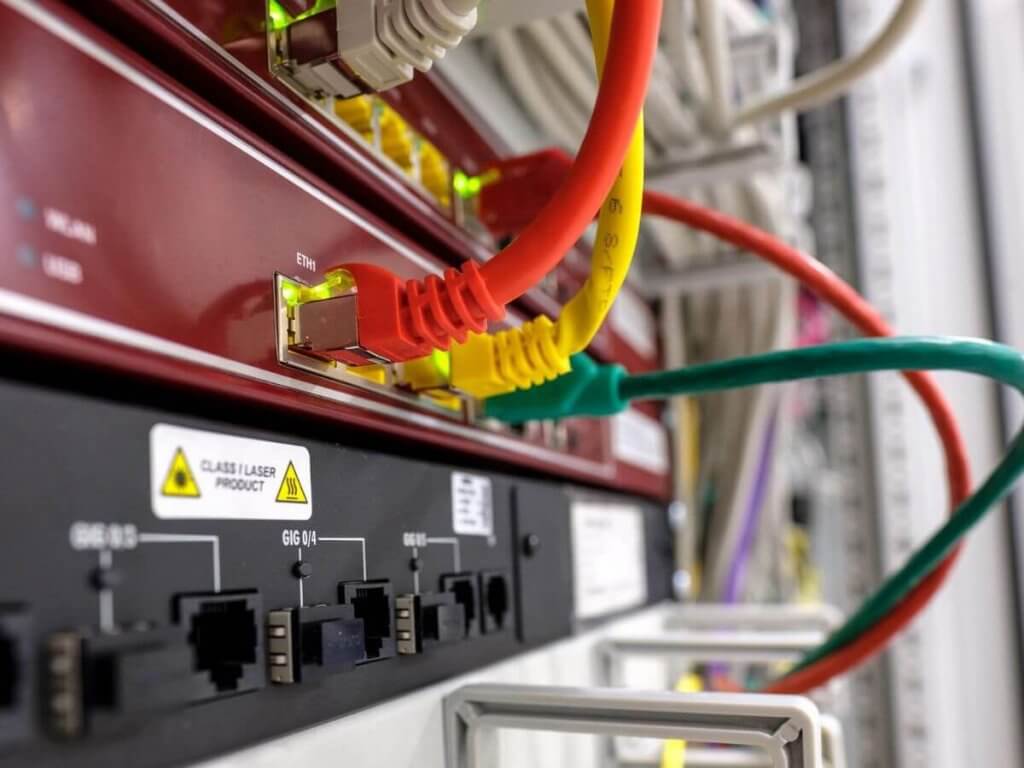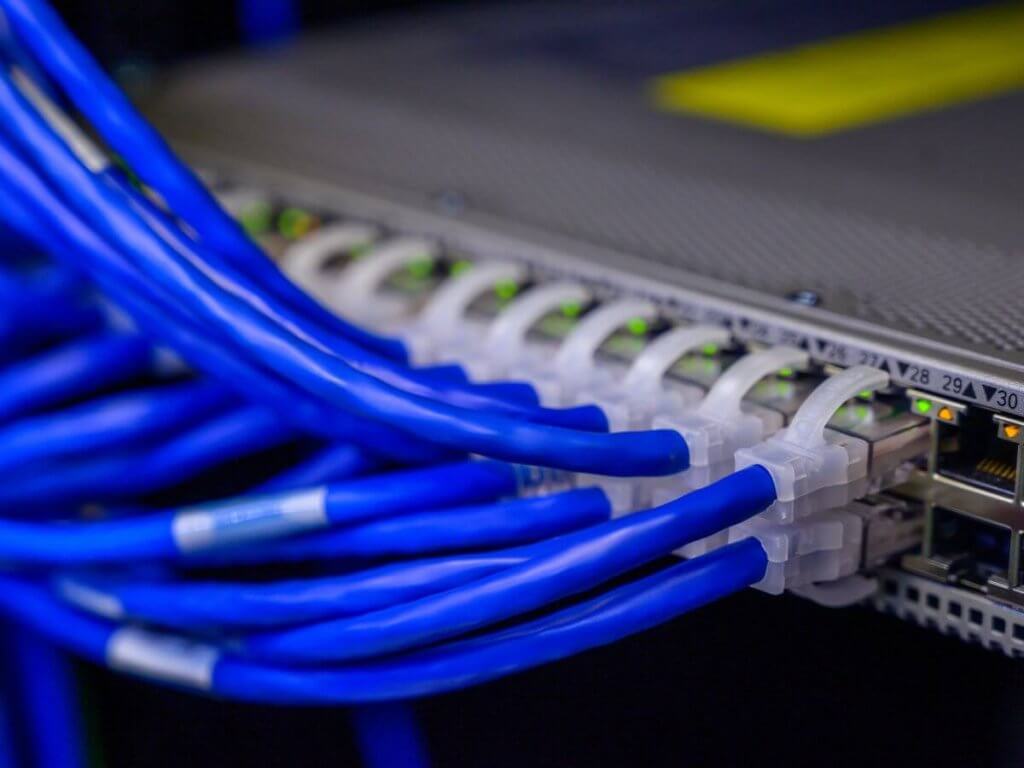You undoubtedly already know that your company requires network security protection and you may already have a firewall security in place. This is because cybercrime is rising and threatens businesses worldwide. However, what precisely is firewall security?
Read more: Cyber Crime in Malaysia.
What Is a Firewall and How Does It Function

Initially, the term ‘firewall’ referred to a wall built to contain the spread of a fire. In a computer system, a firewall is a device that creates a barrier between a trusted and an untrusted network. In the sense that firewall security seeks to prevent cybersecurity threats.
A firewall is a system or set of methods regulating network traffic movement between various areas of a network. A firewall protects the network from malicious users and restricts their behavior at set boundary levels.
It keeps an eye on the incoming and outgoing traffic and compares it to pre-defined rules that filter out hazardous stuff.
Even though no security solution can fully forecast the intent of every piece of information, advancements in security technology allow for the use of recognized patterns in network traffic that have previously indicated assaults on other businesses.
Types of Firewall Security Systems

Every firewall implements rules that specify the circumstances under which a particular packet or a group of packages in a transaction can be forwarded safely to the intended receiver.
An effective firewall should prevent harmful software like worms from gaining access to the network and be strong enough to handle internal and external threats. Additionally, it instructs your system to stop transmitting illegal data to other systems.
There are five different firewalls that are still crucial in modern business environments.
Packet filtering firewalls work online at intersections where equipment like routers and switches operate. These firewalls don’t route packets; instead, they check each one against a list of predetermined standards such as the permitted IP addresses, packet type, port number, and other information from the packet protocol headers.
Generally speaking, complex packets are unceremoniously dropped, which means they are not transmitted and eventually vanish from existence. Even though packet filtering is a cheap firewall, it may not always offer the level of security required for all use cases.
Packet filtering provides a fundamental security level that can protect against known threats for small or budget-constrained businesses. Larger organizations can additionally use packet filtering as a layer of defense to sift through internal departmental communication for potentially hazardous content.
Circuit-level gateways monitor TCP handshakes and other network protocol session initiation messages across the network as they are established between the local and remote hosts to ascertain whether the session being initiated is legitimate or whether the remote system is regarded as trusted. This is another relatively quick method of identifying malicious content. However, they don’t check the packets themselves.
Although packet filtering firewalls are less secure than circuit-level gateways, they should still use them in conjunction with other systems. For instance, application-level gates are frequently used in conjunction with circuit-level gateways. This approach combines content filtering with the benefits of packet- and circuit-level gateway firewalls.
The single point of entry and exit for the network is this form of device, which is technically a proxy firewall but is also referred to as an application-level gateway. It filters packets based on various factors, such as the HTTP request string and the service for which they are meant, as indicated by the destination port.
Although gateways that filter at the application layer offer significant data protection, they can significantly slow down a network and be challenging to administer.
For the best protection against threats from web applications, employ proxy firewalls. They can restrict access to dangerous websites and stop the firewall from leaking sensitive data. However, they could cause a lag in communication.
The usage of stateful inspection firewalls are advantageous to the majority of enterprises. These units act as a more thorough gateway between computers, other assets housed behind the firewall, and resources located outside the company. Additionally, they can successfully protect network devices from specific threats like DoS.
State-aware devices track whether a packet is a part of an active TCP or another network session in addition to inspecting each package. While providing better security than either circuit monitoring or packet filtering by themselves, this has a more significant negative impact on network performance.
Another variation on stateful inspection is the multilayer inspection firewall, which considers the flow of transactions across many protocol layers of the seven-layer Open Systems Interconnection (OSI) model.
NGFW or next-generation firewall is a combination of deep packet inspection firewall with stateful inspection firewall. It also includes features such as deep packet inspection (DPI), network security tools like an IDS/IPS, malware filtering, and antivirus.
DPI examines the actual data that a packet carries, as opposed to classical firewalls that only check the protocol header of the box. When a packet payload is combined with additional parcels in an HTTP server reply, a DPI firewall that monitors web browsing activity can determine whether the result is a valid HTML-formatted answer.
Next-generation firewalls are a vital safety net for businesses in highly regulated sectors like healthcare or finance. These firewalls’ multipurpose capabilities appeal to individuals who have a firm understanding of precisely how dangerous the threat environment is.
The best results from NGFWs come from an integration with other security systems, which frequently necessitates a high level of expertise.
Different Firewall Deployments Available to Businesses in Malaysia

Security deployment options expanded along with IT consumption paradigms. Today, firewalls can be deployed as a hardware device, software-based, or supplied as a service.
An appliance known as a hardware firewall serves as a secure gateway for devices inside and outside the network boundary. Hardware-based firewalls don’t deplete the host devices’ processing power or other resources because they are standalone appliances.
These devices, also known as network-based firewalls, are perfect for medium- and large-sized businesses needing to safeguard numerous devices. Compared to software-based firewalls, hardware-based firewalls require more excellent technical expertise to configure and maintain.
A server or other device hosts a software firewall, also known as a host-based firewall. Each device that needs security must have host firewall software installed. Software-based firewalls use some of the CPU and RAM of the host device.
Individual devices benefit greatly from the protection offered by software-based firewalls against viruses and other harmful content. They can distinguish between the several hosts’ running programs and filter incoming and outgoing network traffic.
With such fine-grained control, it is conceivable to allow communications to/from one program while disabling them to/from another.
Cloud-based firewalls are available from managed security service providers (MSSPs) to monitor both in-house network activities and external on-demand settings.
Also known as firewall as a service, an MSSP can manage cloud-based firewalls, making it an excellent solution for big or highly spread companies with gaps in security resources. Smaller businesses with fewer resources in terms of employees and knowledge can also benefit from cloud-based firewalls.
How Businesses in Malaysia Can Benefit From Firewall Security

The security of network firewalls is crucial for businesses today for the following five reasons:
Hackers most frequently use social engineering tactics to compromise company systems and data. They use several ploys to deceive gullible workers into providing them with sensitive and insider information.
Firewalls help to some extent, but high-quality cybersecurity training is the best way to stop this issue in its tracks. Firewalls can both detect and block malicious incoming traffic.
A firewall that performs both tasks with hardware and software is also available. However, it is advised that you get a firewall that includes antivirus security.
Unauthorized individuals cannot access your network because of firewalls. However, you can also prevent your users from accessing a particular set of websites. This is helpful if you want to stop your staff from visiting improper websites that might download harmful software while on your network.
For instance, you might forbid your staff from visiting websites that promote gambling or pornography. You can also prevent users from accessing shady online stores or websites that might provide illegal downloads.
Doing this may limit network exposure to websites that can encourage dangerous malware to infiltrate your systems and manage what your employees see when they use their work computers.
Computers are shielded from viruses and other harmful software by firewalls. They keep an eye on both incoming and exiting data and record any odd behavior. They could be set up to notify you of attacks or attempts to obtain unauthorized access to your computer system. These warnings can significantly improve your company’s overall cybersecurity posture.
Frequent warnings may signal that a threat actor is monitoring your organization and that you must strengthen your defenses. If so, you should start creating a solid cyber event response strategy for when you are attacked.
Network bandwidth can be managed with the use of firewalls. You can restrict the amount of bandwidth made available for particular categories of data using a firewall. This could be achieved by limiting the bandwidth available for streaming media files or other types of content.
Only particular types of traffic may be configured to pass through a firewall to access the Internet. You might, for instance, want to block access to some websites while allowing users to connect to your business printer.
A virtual private network (VPN) secures communications between two parties using encryption technologies. Without anyone knowing, the encrypted traffic traverses open networks like the Internet.
A firewall may offer VPN services. For instance, you can set up your firewall to allow Internet access from only a select group of machines. After that, you can build a tunnel to enable safe online communication between these PCs.
You can also use a firewall to encrypt the data transmitted between your company’s PCs and your remote office. It can also serve as a gateway to connect your company’s local area network (LAN) to a vast area network (WAN).
Read more: SD-WAN or Software Defined Wide Area Network.
Get the Right Firewall Security for Your Business in Malaysia
One element of a sound cyber security strategy is a firewall. We at Spectrum Edge are here to assist you in creating and implementing a cybersecurity plan that is specifically suited to meet your individual needs. We can uncover weaknesses in your systems, advice on safeguarding networks, and offer continuous monitoring and reporting services. To effectively employ firewalls to safeguard your organization, it is crucial to understand how they function.